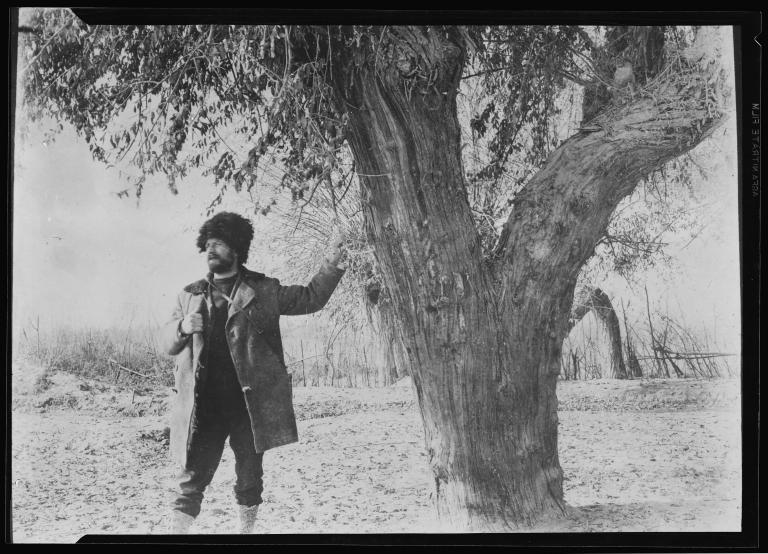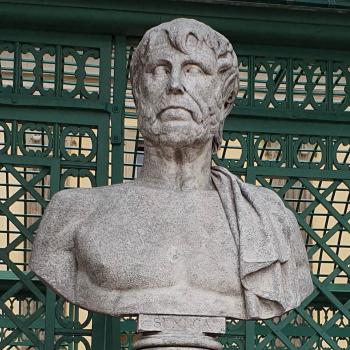
Did you ever wonder where the name “Meyer” lemon came from? I did the other day and after some research discovered that this juicier, sweeter version of an ordinary lemon was named for one Frank Meyer. And there’s an amazing, cautionary story behind the man.
Meyer was an explorer whose travels across China in the early 1900s were written up by major newspapers and earned him an audience with Teddy Roosevelt. But Meyer was no ordinary adventurer—he was an “agricultural explorer” for the US Department of Agriculture, tasked with travelling across Asia in search of new foods Americans might like.
Meyer collected over 2,500 seeds and specimens during his overseas missions, not only introducing America to the lemon that would later bear his name, but multiple varieties of peaches, plums and pears. Yet his work took a heavy toll on him. At the age of 42 he vanished from a Chinese steamer. While the American authorities looked into foul play, the reason for his death was never uncovered. Many presumed he had committed suicide. But why?
The explorer left clues about the reason for his disappearance. While travelling across China, Meyer kept a running correspondence with an associate and friend in the Department of Agriculture, David Fairchild. While most of Meyer’s writing are reports from the field, discussing everything from soybeans to fruit blights to local farming practices, at times his notes were deeply personal. They revealed a man who was lonely, stressed and increasingly unhappy.
In an online archive, I discovered over 400 pages of Meyer’s correspondence from the last 16 months of his life, culling through them for pertinent details on his state of mind. The words in italics below are Meyer’s, I have added some notes for clarity which appear in standard text.
February 3, 1917. Replying to a letter from Fairchild, Meyer expresses his condolences for the ill health of Fairchild’s wife. He goes on to talk about his own health and state-of-mind. (The war he refers to is World War 1.)
My own health is not as good as I wished it to be. The loneliness of life; the great amount of work I have to do, which I can never finish; the paralyzing effects of this never-ending war, and so many other things, they rob me of my sleep and make me feel like being a ship adrift. Of course, there must be millions of people on this poor world of ours who feel similarly and on a sensitive person all of this reflects again and again.
February 10, 1917. Though only 41, Meyer wonders if his job isn’t better suited for someone younger.
I may return sooner than I expected, perhaps in 1918. The loneliness and the hardships of life here are beginning to be more distasteful to me and the time is approaching that I’ll need to leave further exploration of China in the hands of younger men.
May 22, 1917. Meyer writes of a change in travel plans and again reveals his current state-of-mind. He is feeling overworked with too much paperwork to handle. (It’s later revealed that he had suffered a nervous breakdown.)
While I tried to write for a few nights and days in succession, so as to finish all of this troublesome correspondence, nature stepped in and I got an attack of nervous prostration and could not sleep, eat or rest anymore. Dr. Graham (of the Church of Scotland Mission) said that this thing was brought about upon me thru overwork, loneliness and worries and should I get a few more of such attacks I would have to give up this work.
Meyer goes on to say that if he “could only get a bath from time to time while traveling” and could have a “congenial fellow white man” with him for conversation, life wouldn’t be so hard.
October 24, 1917. Meyer has received a bundle of letters from Fairchild at once and responds to several questions posed to him. There’s a suggestion he come back to Washington DC where a desk job awaits him but he does not see this as a viable career path.
One thing is sure and that is that the office life pure and simple is not in my line. I must have plants around me and must be able to visit collections of living plants frequently for study and inspiration.
Months of correspondence then go by without Meyer mentioning his personal life or feelings, just series of by-the-book reports of his explorations and findings.
March 6, 1918. It is now the following year and it appears Meyer still does not have an escape plan. He is growing increasingly depressed. The following letter is from the pen of Fairchild and addresses concerns that Meyer had expressed in a previous letter. Fairchild writes:
I am very sorry to have you talk as you do about the “evening of life descending upon you.” I realize the lonesomeness and induced introspectiveness of your life…and the great responsibilities which become heavier each day make me wish at times that you could be here with us.
Fairchild tells Meyer he will find him a job “within the call” where he can carry on his work and “be a source of inspiration for the next generation.” He closes his note urging Meyer to “push on to bigger and grander things before life really closes in.”
May 18, 1918. Still in China, this is an excerpt from the last letter Meyer wrote. Life had closed in on him. Civil war had broken out and he was stuck in a war zone. Upon his departure, he was detained by soldiers, then passed through villages that had been looted and burned.
I am awfully glad that I got away from Ichang; the situation began to depress me. One cannot live for months in atmosphere of suspension without feeling the effects. And as I had cheerless, uncomfortable quarters and lack of substantial food at times, one had both mental and physical discomforts.
Meyer goes on to give one final cryptic hint of his state of mind, the underline is his:
It often seems we do not live ourselves any longer but that we are being lived.
There were no more letters. On June 2, 1918, a message from the US State Department was sent to the Department of Agriculture, indicating Meyer was on a steamer from Hanko to Shanghai. On June 7th, he was reported missing. A day later came this cable from the US Consul in China:
June 8, 1918. Found Meyers body thirty miles above Wuhu.
Frank Myers was found floating face down in a river. With no evidence he had been assaulted or pushed from the ship, it was later presumed he had gone overboard himself and drowned. There was no suicide note found.
Performing labor one does not like is one of the great tragedies of civilization. ~Napoleon Hill
It was apparent from his letters that Meyer pushed himself hard. His final decade of life was one of endless exploration in a strange land, often living in harsh conditions, dutifully completing the government-required paperwork at each stop. At some point, the job became a drag on him both physically and mentally. While Fairchild attempted to help him find a way out, Meyer could see none.
Has our relationship to work changed in 2019? Maybe not.
On January 26th, there was an article in The New York Times titled Why Are Young People Pretending to Love Work? There was talk of a new work ethic that has permeated the tech and start-up industries. In a world where 18-hour days are common, work was no longer seen as something you did to get what you want; work itself was the purpose of your existence. As one person said “you go into your church every day and worship at the altar of work.”
Japan has a similar culture where a slavish devotion to work is the norm. In fact, it’s so common for employees to work themselves to death that there’s a word for it: karoshi. There’s another term in the case of suicide due to overwork: karo-jisatsu. This may not be a surprise when you learn “salary-men” often work 6 days a week until 10 or 11 at night and vacations are taboo.
For a different philosophy of work, I’ll pass along the wise words of a friend in the advertising business, an accomplished freelance professional. She recently told me: “My goal is to do the least amount of work for the most amount of money.” To me, this sounds like the perfect equation. While we may need to earn money, we also need to have balance in our lives. We should work to live, not live to work. Ultimately, work is a means to an end.
Toiling for more than 8-hours a day is not something that will make you a better human being or improve relationships with your loved ones or lead you to greater happiness or contentment. It will in fact lead to greater physical and mental stress, a disconnection from what really matters in life and, perhaps ironically, a loss of true purpose. If only Frank Meyer had come to this realization before it was too late.













